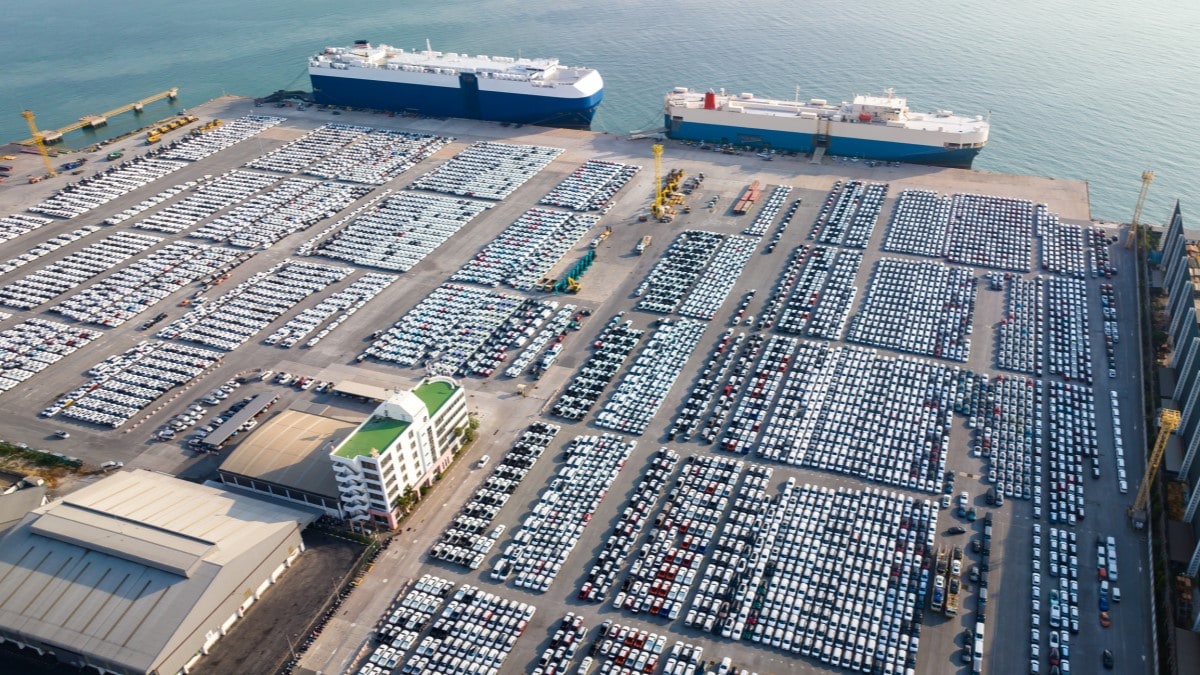President Donald Trump this afternoon announced a new round of reciprocal tariffs on virtually all imported goods. In a rare bit of good news for car shoppers this month, the tariffs will not combine with other tariffs on cars and car parts.
Trump plans to enact a tariff on 100% of goods imported into the country.
A White House fact sheet explains, “President Trump will impose a 10% tariff on all countries,” as well as “an individualized reciprocal higher tariff on the countries with which the United States has the largest trade deficits. “
Those higher rates apply to many allies and some of the major foreign suppliers of new cars to the U.S. Goods from the European Union will face a 20% levy. Those from Japan will see a 24% tariff; South Korea, 25%.
Tariffs Don’t Stack With Other Auto Tariffs
In a surprise move, the White House said, “Some goods will not be subject to the Reciprocal Tariff.” Those include steel and aluminum, already subject to a recent round of tariffs, and new cars and car parts.
Many goods from Canada and Mexico are exempt under the U.S.-Canada-Mexico Agreement (USMCA), a trade pact Trump negotiated during his first term.
“This means USMCA compliant goods will continue to see a 0% tariff, non-USMCA compliant goods will see a 25% tariff,” the White House explains.
That means the reciprocal tariffs may have little practical effect on car shoppers since most foreign-made cars are already subject to 25% tariffs under last week’s proclamation.
Early Responses: VW Halts Some Shipments
Automakers have spent the last week planning their responses to the 25% levy and are likely relieved to see that reciprocal tariffs will not be added to that figure. But some have already begun changing their practices.
Industry publication Automotive News reports, “Already, Volkswagen of America has halted rail shipments of vehicles built in Mexico into the U.S. and plans to incorporate an added import fee to the destination charge line item on window stickers, according to a memo to dealers.”
The tariffs may push Americans to rush to car dealerships hoping to snap up the remaining new cars imported at pre-tariff prices. But Kelley Blue Book parent company, Cox Automotive, expects the levies to mean fewer new car sales this year.
Cox Automotive Chief Economist Jonathan Smoke explains, “After a near-term surge in buying, we expect sales to fall, new and used prices to increase, and some models to be eliminated. The tighter supply and higher prices we expect will be reminiscent of 2021. If the White House then pursues expanding the scope and applying the 25% duty to parts, we will see a negative impact on U.S. production as well. Moreover, with 25% increases in the cost of parts, inflation would surge in maintenance and repair and insurance, which vehicle owners are already struggling to handle.”
Stock markets worldwide reacted sharply to the move. The New York Times notes, “Wall Street shuddered as President Trump announced sweeping tariffs on countries across the globe on Wednesday, with the early market reaction pointing to a further slide in the stock market and a weakening dollar.”








